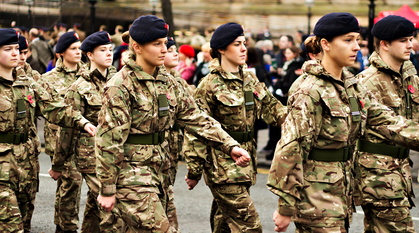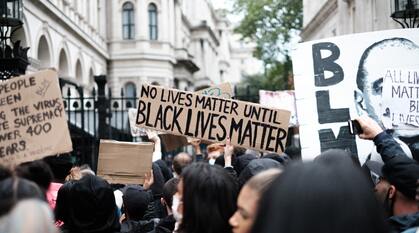Embracing diversity?
Edwina Peart poses some further questions to explore following some of the results of a Quaker survey on diversity.

In December 2018, I launched a survey for Quakers in Britain on diversity. Using the material gathered from questions sent to meetings and committees by Meeting for Sufferings and the individual data gathered from the survey, I've been building a picture of Quaker communities across Britain. The survey had 2,011 responses (roughly 10% of all Quakers in Britain) and has generated rich and varied information, in terms of actual diversity and attitudes to it. I make no claims of representation. It is a self-selecting sample.
Ethnicity and nationality
In terms of ethnicity and nationality, Quakers in Britain are overwhelmingly white British/European, including Welsh, Scottish and Irish. Roughly 1.5% of respondents identified as mixed race, black British, British Asian, British Chinese, black Caribbean and black African. Just over 2.5% identified as European nationals.
Of interest to me is the fact that the category was completely open (there were no pre-defined answers to select) and many comments were made about the irrelevance of the ethnicity question, yet the answers were surprisingly uniform. The greater presence of 'other' white nationalities compared to British black or Asian people is also worth noting. It raises the question, is race more significant than culture?
Gender and sexuality
The sexuality and gender questions show greater diversity. Over 15% of respondents identified themselves as gay, lesbian, bisexual, pansexual, asexual, queer and fluid. Clearly this is an area in which a range of difference finds a place. It is an area in which Quakers have done a lot of work and have led the faith community on same-sex marriage. I feel that the very public support that Quakers have demonstrated in this area of inequality and the many discussions that have taken place in the community have contributed to this being a welcoming and safe space.
Just under 2% of respondents identified as non-binary, transgender, agender, intersex, gender fluid and androgynous. The numbers and range of terms used suggest that gender diversity is not an issue that exists only in the wider society and it is one we can't choose to ignore.
Class
In terms of class, 7.5% of respondents identified as working-class. That's half of the proportion who identified as non-heterosexual. Many of those who identified as working-class added prefixes such as educated or justifications for claiming this such as housing situation.
When holding events or meetings there is an expectation to pay for costs such as travel, childcare and necessary purchases upfront, and then be refunded. In my own work I have tried to organise a pool of money to meet these costs directly. This has been difficult. Our default is to assume that people have the disposable income and if not – and they ask – we will make provision. Are we creating barriers to participation through our processes?
Additional comments
Many people provided additional information, with some using this section to identify other aspects of diversity that were not raised. For example, language, north and south disparities, the lack of conservatives (party political and theological) and a background or connection to Quakers. Many lamented the use of and need for labels.
It seems that Quakers who are interested in diversity and inclusion often satisfy this urge through activism, and examples include working in prisons or through specific campaigns. Others are focused on searching for spiritual understanding and community, and speak to the spiritual diversity of their meeting. I think these aspects can be usefully combined to the benefit of both.
What's next?
I believe that the project is having a positive impact and that important work is being initiated. People are beginning to have more conversations and we're uncovering the diversity that exists currently. I would like to see this continue. I would like it to be embedded in the Quaker faith community. It is part of Quaker values. Expectations have been raised and a process begun, it would be good to build upon this momentum.
Now we have an idea of how diverse Quakers already are and how they are less so, we can plot our journey to get to where we want to be. At Yearly Meeting, we'll focus on power and privilege. This could be a key moment for Quakers in Britain.


